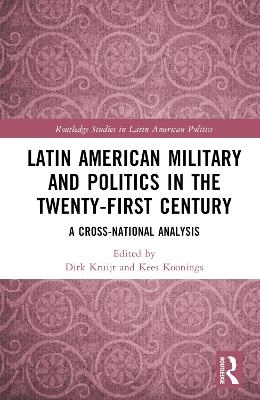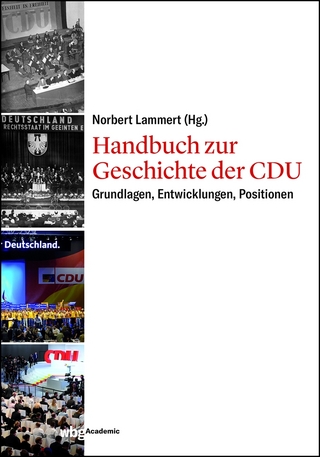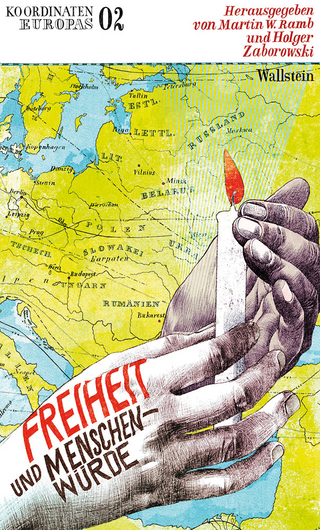
Latin American Military and Politics in the Twenty-first Century
Routledge (Verlag)
978-0-367-75778-6 (ISBN)
Divided into four parts covering the entirety of Latin America, the book argues that the Latin American military as semi-autonomous political actors have not faded away since 2000 and may even have been making a comeback in various countries. Each part outlines scenarios which effectively frame the various pathways taken to post-military democratic society. Part 1 critically examines textbook cases of political demilitarization in the Southern Cone, Peru, and Costa Rica. Part 2 contrasts the role of the military in the post-2000 politics of two regional powers: Brazil and Mexico. Part 3 examines the political role of the military facing ‘violent pluralism’ in Colombia and the Northern triangle of Central America. Finally, Part 4 identifies country cases in which the military have been instrumental in the rise, sustenance, and occasional demise of left wing revolutionary projects within Venezuela, Cuba, Nicaragua, and Bolivia.
Latin American Military and Politics in the Twenty-First Century will be of interest to scholars, students and professionals in the fields of Latin American history, international relations, military studies and studies concerning democracy, political violence and revolution in Latin America elsewhere.
Dirk Kruijt is Professor Emeritus of Development Studies at Utrecht University, and currently is a research fellow at the Centre for Military Studies (CEMIS) at Stellenbosch University, South Africa, and at the Centro de Estudios Internacionais (CEI) at the Instituto Universitário de Lisboa (ISCTE-IUL). He has published about military governments and revolutions; insurgency and counterinsurgency; and urban violence and non-state armed actors. His two most recent publications are Ethnography as Risky Business: Field Research in Violent and Sensitive Contexts (2019, Kees Koonings, Dirk Kruijt, and Dennis Rodgers, eds.), Defence Diplomacy and National Security Strategy: Views from the Global South (2020, Liebenberg, Kruijt and Paranjpe, eds.), and Latin American Guerrilla Movements: Origins, Evolution, Outcomes (2020, Dirk Kruijt, Eduardo Rey Tristán, and Alberto Martín Álvarez, eds.). Kees Koonings is Professor of Anthropology of Development and Conflict in the Department of Cultural Anthropology at Utrecht University and Professor of Brazilian Studies at the Centre for Latin American Research and Documentation (CEDLA), University of Amsterdam. His research interests are urban development, citizenship and social exclusion in Latin American cities, conflict and violence in Brazil, Colombia and Central America. Two of his recent publications are Brazil Under the Workers' Party (2014, Fabio de Castro, Kees Koonings, and Marianne Wiesebron, eds.) and Ethnography as Risky Business: Field Research in Violent and Sensitive Contexts (2019, Kees Koonings, Dirk Kruijt, and Dennis Rodgers, eds.).
1. Introduction - The Latin American Military And Politics in the Twenty-First Century Part 1: Back to the Barracks? 2. Peru - The Armed Forces in Search of a Place in the World 3. Chile - A Democracy with Semi-Autonomous Armed Forces: A History of Civil-Military Relations Since 1990 4. Uruguay - The Military and Politics in the Twenty-First Century: The Chronicle of a Conflictive Relationship 5. Argentina - The Reinvention of the Armed Forces in the Face of the Challenge of De-Militarising the Nation-State 6. Costa Rica - The De-Militarisation of Politics: An Exceptional Story Part 2: Regional Powers under Siege 7. Brazil - The Military and Politics at the End of the ‘New Republic’ 8. Mexico – The Armed Forces: Revolution, One-Party Rule, and the Uncertainties of Democratisation and Insecurity Part 3: Violent Pluralism 9. Guatemala – The Sword of Damocles: Deficient Civilian Control and Relative Military Autonomy 10. El Salvador – The Armed Forces in Politics: Support and Tutelage 11. Honduras – The Militarisation of Politics or The Politicisation of The Military? The Armed Forces in Times of Political Crisis, Corruption, Drug Trafficking and The Covid-19 Pandemic 12. Colombia – Civil-Military Relations in the Twenty-First Century Part 4: Armoured Bolivarianism 13. Venezuela – The Osmosis Between the Dominant Political Party, the Military and the Public Administration 14. Cuba – The Cuban Armed Forces: From Revolutionaries to Entrepreneurs 15. Nicaragua – The Changing Ethos of the Nicaraguan Army: From a Revolutionary Army to an Advocate of Democracy and, Finally, a Financial Emporium and Silent Accomplice to the New Dictatorship 16. Bolivia – The Armed Forces and the Crisis of the Plurinational State of Bolivia: Neo-Conservatism Versus the Popular Movement in the Twenty-First Century 17. Military Officers for Democracy: The OMIDELAC in the 1970s and 1980s 18. Conclusions – Latin America’s New Civil-Military Politics
| Erscheinungsdatum | 06.07.2022 |
|---|---|
| Reihe/Serie | Routledge Studies in Latin American Politics |
| Zusatzinfo | 2 Tables, black and white; 1 Line drawings, black and white; 1 Illustrations, black and white |
| Verlagsort | London |
| Sprache | englisch |
| Maße | 152 x 229 mm |
| Gewicht | 453 g |
| Themenwelt | Sozialwissenschaften ► Politik / Verwaltung |
| ISBN-10 | 0-367-75778-8 / 0367757788 |
| ISBN-13 | 978-0-367-75778-6 / 9780367757786 |
| Zustand | Neuware |
| Haben Sie eine Frage zum Produkt? |
aus dem Bereich


